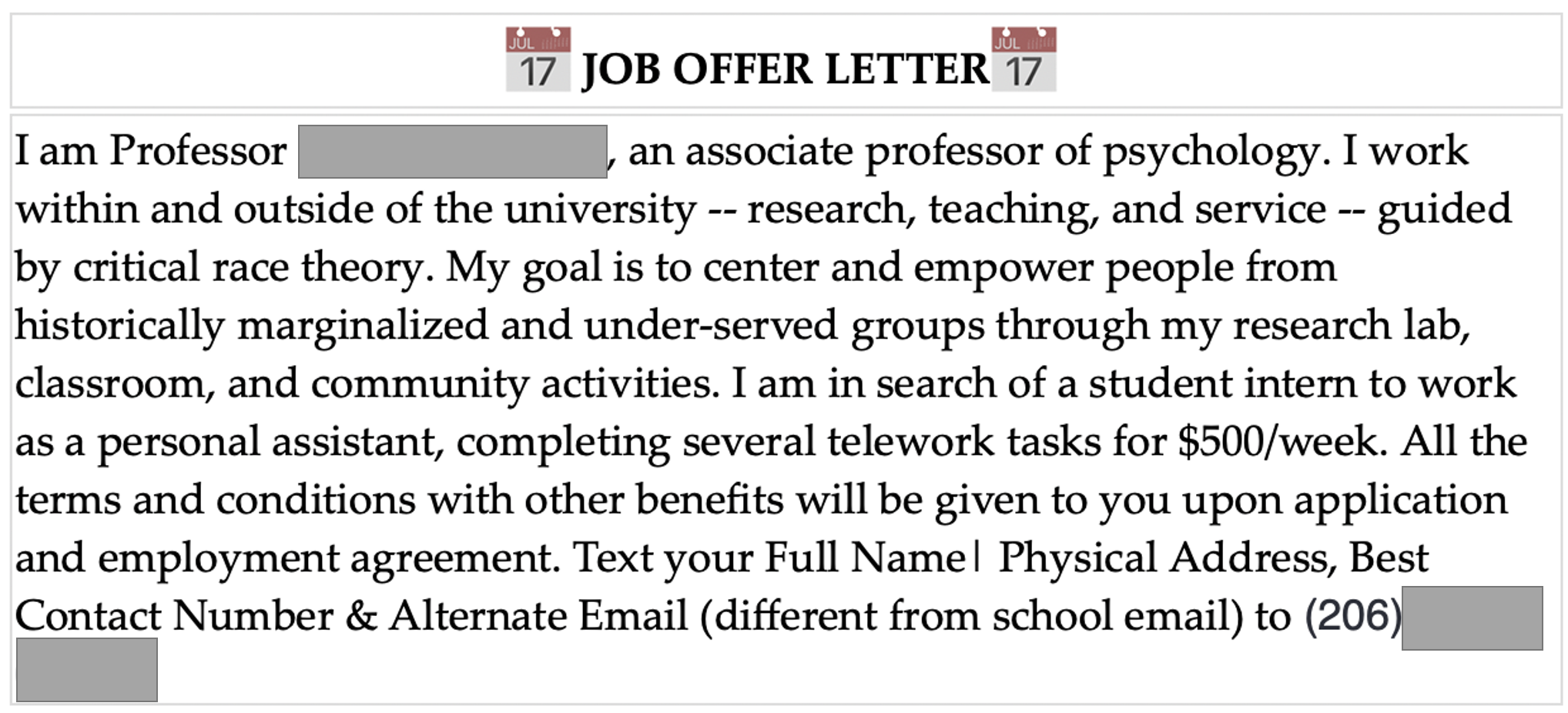Many in the UW community are looking forward to a summer break, but cyber thieves stay busy all year finding new ways to trick students, staff, and faculty into giving up their data, credentials, and cash. Summer months bring summer scams delivered through email, text and fraudulent calls aimed at various University groups, including the incoming first-year class. These scams may attempt to convince you to send or receive money advances with promises of easy jobs, tuition discounts or other rewards.
A screenshot of one of these messages, a phony job offer, can be found on this web page. In this example, the recipient is asked to call a phone number where they may be enticed into:
- Divulging personal data and credentials,
- Sharing bank account information,
- Buying gift cards,
- Unwittingly participating in money laundering activities,
- And/or other deceptive schemes.
Some deceitful offers have been tied to internships, financial aid or tuition payments. Those sent via email can appear to be from UW employees, but are often sent from phony or spoofed email accounts. The scammer may also ask you to provide a cell phone number or non-UW email address in order to contact you via alternative methods.
Such hoaxes are not new but they are constantly adapted for the times and they are growing increasingly sophisticated. The current fraudulent activity focuses on money, but your personal data and financial information may also be targeted.
Please review the following tips and resources to help keep your personal information and UW NetID login credentials secure throughout the year:
- Check out our Scams web page and awareness postcard for students and share them with other members of the UW community.
- Be aware that UW offices and employees will never ask you for payments in the form of gift cards or favors involving gift cards.
- Only provide or update your personal information through MyUW. The UW will use the information you have provided in MyUW to communicate with you or disburse aid to you.
- Messages that solicit money, ask for your financial or bank account information, or offer to send you money should be regarded as highly suspicious. If it sounds too good to be true, it probably is.
- Be cautious about clicking links in email, even from someone you know.
- Use strong passwords and protect your UW NetID credentials.
- If you’ve been a victim of a scam, contact your local law enforcement, such as UW Police.
- Report suspected email scams to security@uw.edu
Resources
OIS: Scams web page
OIS: Phishing Examples
FTC: Common Scams
